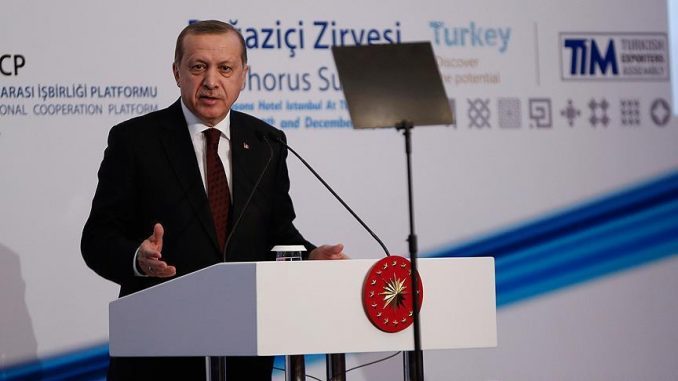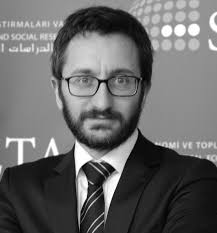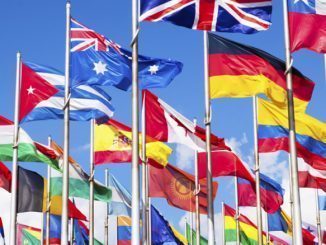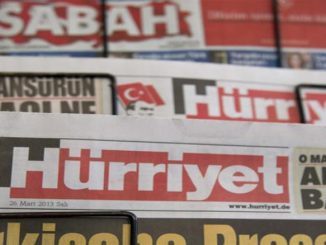
Organized by the International Cooperation Platform under the aegis of the Turkish Presidency, the 7th Bosporus Summit kicked off Tuesday in Istanbul with the participation of Erdogan
Having already hosted roughly 7,500 businesspeople, the summit welcomed business professionals, statesmen, and ministers from Turkey and around the world.
The three-day summit included 22 panels held under the auspices of “Looking Ahead: The Next 50 Years,” “Approach of the West towards Developing Countries,” the “New Silk Road,” “Governing Smart Cities,” “Women’s Empowerment for a Smart Economy,” the “Future of the Sports Industry,” “Renewable Energy,” and the “Contribution of Art on the Economy.”
The annual 7th Bosporus Summit was held under this year’s theme of “Global Futures and Universal Goals.” The executive members of nongovernmental organizations (NGOs) came from 70 countries worldwide including the Middle East, Africa, the Turkic Republics and the Balkan countries. President Erdoğan will give the honorary commencement speech at the event. Speaking about officiators’ goals at this year’s summit,International Cooperation Platform founder Cengiz Özgendil said, “We will address our global future and the course of the next 50 years ahead of us. This year, our focal point will be Saudi Arabia, which recently began giving weight to investments in the private sector.”
During the three-day summit, issues ranging from the defense industry to financing and the sports industry to smart technology applications were brought to the table by experts during the event.
The European Parliament’s latest vote on Turkey amounts to harrassment, Erdogan tells Bosphorus Summit
Turkey has not ended its European Union accession process but the EU should not see itself as the only fish in the sea, Turkish President Recep Tayyip Erdogan said Tuesday.
Speaking at the 7th Bosphorus Summit in Istanbul, Erdogan said Turkey has been waiting for an answer from the EU for over 50 years, and criticized last week’s non-binding vote by the European Parliament urging a freeze to Turkey’s EU accession talks, calling it “harassment.”
“We have not closed the EU subject yet. But the picture we have faced does not allow us to fall for positive expectations on this subject. There are always many alternatives before Turkey. We would continue our way by considering one of these options,” said Erdogan.
The EP’s vote was largely symbolic as it has no administrative power but at the same time important for investor sentiment about Turkey and the capital inflows needed to fund Turkey’s current account deficit.
On how to cushion the effects of the stronger dollar on emerging economies, including Turkey, Erdogan said using gold and local currencies might help.
“Recently landlords of stores in shopping malls have been charging rent in foreign currencies,” he observed. “I think rentals based on local currency should be put into practice to help our country through this challenging period.”
The Turkish lira recently fell to historic lows after Donald Trump’s surprise U.S. presidential election win reinforced expectations the U.S. Federal Reserve could hike interest rates quicker than previously thought.
“Instruments like negative interest rates, not even imaginable in the near past, have become ordinary policies of the central banks of developed countries,” said Erdogan. “Despite all this, developed countries cannot overcome the problems of slowed growth. Because their diagnosis is wrong, they are looking for treatment in the wrong place.”
Erdogan stated that the nature of the economy is based on the demands of the people, adding that a sustainable economy must be people oriented.
Erdogan also stated that free trade agreements allow people to access various products and stressed the importance of education to be competitive in an open environment.
“In this new global system, education is the most essential tool that can provide large sectors of society with the new job opportunities that come with technology,” he added.
– Sweeping changes
Speaking at the event, Albanian President Bujar Nishani said that the world is now multipolar and has new economic balances, stressing the importance of closer collaboration and acting in coordination as the world transforms rapidly.
“First of all we must do a proper analysis. We should now see what we are facing. Through this, we should come up with advice for solutions. Life, the economy, collaboration, and communication now have a global character. This affects all of us.”
Nishani said that the last decade has seen sweeping changes, and at such times we question our common values and humanity, he added.
“When humanity turns its face to the future, it forgets what happened in the past. Countries have different type of risks so this summit happening now, at this time, is very important. Gathering different experts from various fields is crucial. This summit creates awareness.”
– Cyprus
Also speaking at the event, Turkish Republic of Northern Cyprus President Mustafa Akinci said it would be helpful for all sides to create an area of cooperation and collaboration on Cyprus instead of tension and trouble.
“We endeavor to make both northern and southern Cyprus a friendly area to Turkey and also to make Greek Cypriots understand how important it is to gain the friendship of a country like Turkey,”
Cyprus has long been a bone of contention between the EU, Turkey, and the Greek Cypriot part of the island, especially after 2004, when the EU admitted Greek Cyprus to the union before the country settled its issues, giving the Greek Cypriots veto power over Turkey’s EU accession talks.
Akinci underlined that for peace, the goodwill of all parties involved must be sought.
“We took an important step and expected the same from other parties. But it didn’t happen. We now face the threat of losing a historical chance that we don’t want to miss. We want a solution but this doesn’t mean in any circumstances. The only thing we want is freedom, equality, and justice.”
The three-day Bosphorus Summit, organized by the International Cooperation Platform (ICP) under the patronage of the Turkish Presidency, hosted 150 speakers from all over the world to discuss topics ranging from global economic issues to regional matters.



